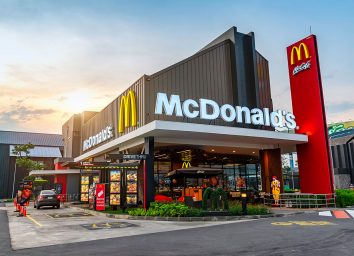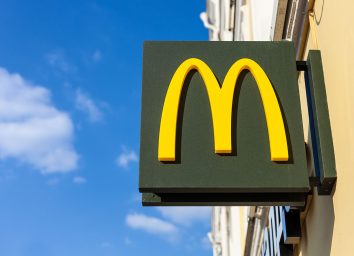This is Where McDonald’s Gets Its Meat
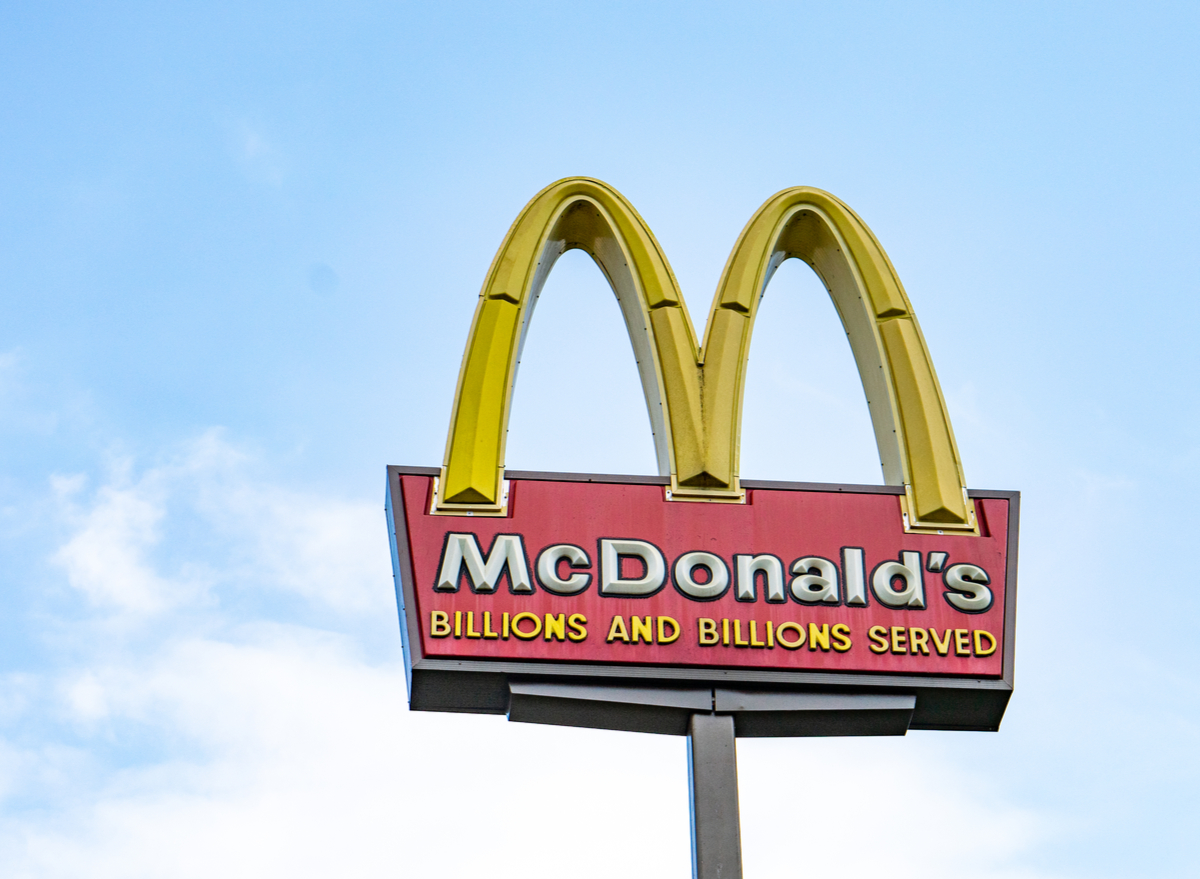
By all accounts, McDonald’s is the most-popular burger business in the country. And the chain’s flagship Big Mac sits cozily atop the lists of the best-selling, most popular burgers on a menu in the U.S., according to the Big Mac Museum.
The chain sells almost 6.5 million burgers per day and about 4,500 every minute—which is a whole lot of meat to source. So how does it get from the farm to the drive-thru? Read on to find out.
Related: 8 Worst Fast-Food Burgers to Stay Away From Right Now
Where’s McDonald’s meat from?
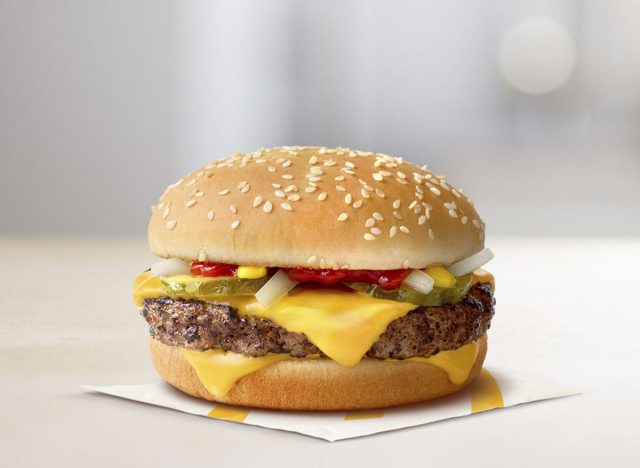
Information supplied by McDonald’s USA says that the company “partners with a global network of suppliers and farmers to provide quality ingredients and packaging materials.” The website goes even further and names Oklahoma City-based Lopez Foods as a key supplier of beef, pork, and chicken to the chain since 1968.
In addition, McDonald’s points to Philadelphia-based Keystone Foods as a major meat supplier providing the chain with more than 150 million pounds of beef, 300 million pounds of chicken, and 15 million pounds of fish each year.
Keystone is also credited with developing the individual quick-freezing process that allows its famous burgers to be frozen in a way that retains both taste and texture. McDonald’s also says it partnered with Keystone in developing its wildly popular Chicken McNuggets.
Asked generally about the quality of its meat, McDonald’s USA says “Our burgers are made only with 100% USDA inspected beef. There are no preservatives or fillers in our patties and the only thing ever added is a touch of salt and pepper on the grill. And our Quarter Pounder burgers are made from 100% fresh beef patties in the US.”
The process by which McDonald’s burgers are made isn’t a well-guarded secret. In fact, a Business Insider report from one of McDonald’s largest meat processing facilities in Germany said that shipments of beef are checked for purity before being ground up in a large meat grinder. The patties are then machine shaped. Once made, the burgers are then individually quick-frozen and packed into plastic bags and boxes before being shipped off to restaurants in the U.S. and beyond.
Some have concerns about this meat and the treatment of animals.
However, the burger giant has recently come under fire for its animal welfare policies by billionaire investor Carl Icahn, who has championed similar animal welfare causes in the past.
CNN reported just days ago that Icahn sent a scorching letter to investors saying that McDonald’s is “failing” investors and misleading the public about the company’s animal welfare policies related to how its pork supply is sourced.
Specifically at issue is the use of “gestation” crates which are very small stalls where pregnant sows are held and their movements highly restricted in the company’s pork supply chain.
McDonald’s had promised in February of this year to completely phase out the use of the crates by 2024, according to CNN.
But Icahn said that the company’s claim that most of its U.S. pork doesn’t come from sows housed in gestation crates was a “cynical fabrication.”
In response, McDonald’s told CNN, “While the company looks forward to promoting further collaboration across the industry on this issue, the current pork supply in the US would make this type of commitment impossible,” adding that Icahn’s demands to eliminate the use of crates would significantly increase costs, “placing a burden on all aspects of our business, our supply chain and McDonald’s customers.”
Further, the company said that its inability to meet previously stated animal welfare targets was a result of challenges from the pandemic as well as a “devasting swine fever.” Icahn called these “poor excuses.”
There are also antibiotics concerns.
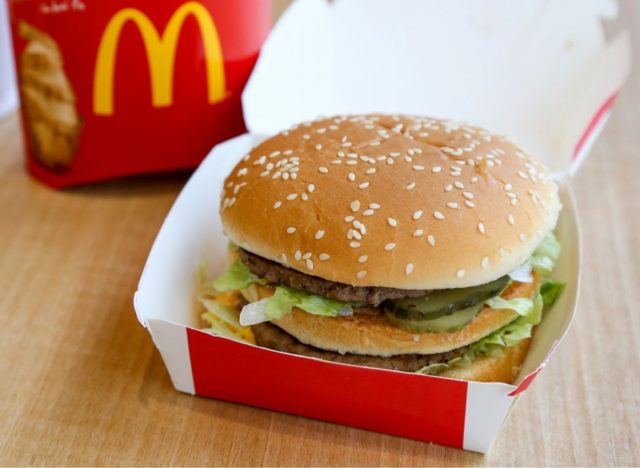
When it comes to the use of antibiotics in its meat supply, McDonald’s says it’s trying to limit the use. Most fast-food chains try to avoid or reduce the use of meat raised with antibiotics since they’ve been recognized as contributing to the development of antibiotic-resistant viruses.
The company’s website states that “In August of 2016, we accomplished our goal to only source chickens in the U.S. not treated with antibiotics important to human medicine.” The company adds it is making progress with beef as well—”In December 2018, McDonald’s announced a policy to reduce the overall use of antibiotics important to human health, in our beef supply chain. Our policy covers for our top 10 beef sourcing markets around the world, including the U.S., representing more than 85% of our global beef supply.”
Unfortunately for the Golden Arches, consumer groups are a bit more critical when it comes to efforts to reduce the use of antibiotics in the chain’s meat supply. The most recent Chain Reaction report, a coalition of consumer groups including Consumer Reports and The Center for Food Safety that annually review and grade fast-food restaurant chains on policies regarding antibiotic use in meats, gave McDonald’s—along with Wendy’s and Subway–a low grade regarding antibiotic use in their beef supplies.
The report noted that “Subway and McDonald’s earned ‘C’ grades for adopting responsible antibiotic use policies but neither has begun implementing them.” In addition, McDonald’s was singled out for “…. failing to honor its commitment to set antibiotic reduction targets in its beef supply by the end of 2020.”
McDonald’s rivals Burger King and Arby’s both were given “F” grades, “for taking no public action to reduce antibiotic overuse in their beef supplies.” Top performers, according to the report, were Chipotle and Panera. Both companies were given “A” grades for the sixth consecutive year.
Despite all of this, there are some McDonald’s items that have actually gotten healthier in the last decade. Read all about them here.

